
7 Eye-Opening Websites to Learn Civil Engineering
Aug 22, 2024 9 Min Read 9504 Views
(Last Updated)
With the vast amount of resources online, it is almost hard to find the best. If you are someone who’s interested in civil engineering and doesn’t have a clue about where to start, don’t worry as we compiled a list of websites to learn civil engineering.
These websites can help you learn civil engineering from basics and even if you are someone already in the field, these can help you gain advanced knowledge about the subject. So, without any delay, let’s learn about the best websites to learn civil engineering.
Table of contents
- What is the Need to Learn Civil Engineering?
- Best Websites to Learn Civil Engineering
- edX
- MIT OpenCourseWare
- Khan Academy
- American Society of Civil Engineers (ASCE)
- Engineering.com
- National Programme on Technology Enhanced Learning (NPTEL)
- Coursera
- Conclusion
- FAQ
- Are there free websites to learn civil engineering online?
- Do these websites offer certification for completed courses?
- Can I learn civil engineering without prior experience or formal education?
- Can I access these websites from anywhere in the world?
- What is the advantage of learning civil engineering online?
What is the Need to Learn Civil Engineering?

Civil engineering is essential for many reasons. Imagine a world without civil engineers; there would be no roads, bridges, buildings, or safe water supply. Civil engineers are like the architects of the real world. Here are some simple explanations for why you need to learn civil engineering:
1. Infrastructure: Civil engineers design and build infrastructure like roads, bridges, and airports. Without them, we wouldn’t have a way to travel and transport goods.
2. Safe Buildings: Learning civil engineering helps us construct strong and safe buildings. This ensures our homes and workplaces are sturdy and protects us from natural disasters.
3. Clean Water: Civil engineers work on water supply and sanitation systems. They ensure that we have access to clean drinking water and safe sewage disposal.
4. Environment: Civil engineers help protect the environment by designing eco-friendly structures and finding ways to manage waste efficiently.
5. Disaster Management: They also play a crucial role in disaster management, helping plan for and respond to events like earthquakes and floods.
6. Innovation: Learning civil engineering leads to innovation. Engineers develop new materials and techniques to make construction faster, cheaper, and more sustainable.
7. Economic Growth: Infrastructure projects create jobs and stimulate the economy. By learning civil engineering, we contribute to our community’s growth and development
Before we move into the next section, we’d like to ensure you are well-versed in the essentials of civil engineering. To smoothen your learning process, consider enrolling in GUVI’s Civil Engineering Career Program with Placement Assistance. You’ll gain hands-on knowledge of fundamental tools such as AutoCAD, Revit, 3dsMax, etc, needed for modern civil design.
Additionally, if you want to get started in the field through self-paced learning, try GUVI’s self-paced AutoCAD certification course.
Best Websites to Learn Civil Engineering
By now, you must have a clear understanding of the importance of learning civil engineering. This is deemed to be an important topic in this current world. So, to help you learn it much better, we compiled a list of websites that can help you learn civil engineering.
1. edX

edX offers a variety of civil engineering courses that cover a wide range of topics within the field. These courses are designed to help you learn and understand the principles and practices of civil engineering in a convenient and accessible online format. Here’s a breakdown of what you can expect from civil engineering courses on edX:
- Diverse Course Selection: edX partners with universities and institutions worldwide to provide a diverse selection of civil engineering courses. These courses cater to different levels of expertise, from beginner to advanced.
- Core Concepts: In these courses, you’ll delve into the fundamental concepts of civil engineering. You’ll learn about structural engineering, geotechnical engineering, transportation engineering, environmental engineering, and more. These courses aim to build a strong foundation in the key areas of civil engineering.
- Hands-On Learning: Many courses include practical elements, such as assignments, projects, and simulations. These hands-on activities allow you to apply what you’ve learned and gain real-world experience in solving civil engineering problems.
- Video Lectures: Most courses offer video lectures delivered by experienced professors and industry experts. These lectures break down complex topics into understandable segments, making it easier to grasp the material.
- Quizzes and Assessments: To gauge your understanding of the material, courses typically include quizzes and assessments. These help reinforce your learning and ensure you’re making progress.
- Peer Interaction: Some courses encourage peer interaction through discussion forums and collaborative projects. This allows you to engage with fellow learners, exchange ideas, and learn from each other’s experiences.
- Flexible Learning: Many courses on edX are self-paced, meaning you can learn at your own speed. This flexibility is particularly helpful if you have a busy schedule or other commitments.
- Certifications: After successfully completing a course, you can often earn a verified certificate. This certificate can be a valuable addition to your resume and demonstrate your expertise in civil engineering to potential employers.
- Specializations and Degrees: In addition to individual courses, edX offers civil engineering specializations and even full degree programs in partnership with accredited institutions. These programs provide a structured curriculum and a pathway to more advanced learning.
- Global Access: edX courses are accessible from anywhere in the world, allowing individuals from diverse backgrounds to access quality education in civil engineering.
Before enrolling in a course, it’s a good idea to review the course syllabus, prerequisites, and the estimated time commitment to ensure it aligns with your goals and availability.
Whether you’re looking to start a career in civil engineering, enhance your existing knowledge, or explore a specific subfield, edX’s civil engineering courses can be a valuable resource to help you achieve your educational and career aspirations.
2. MIT OpenCourseWare

MIT OpenCourseWare (OCW) is a fantastic resource that offers free access to a wide range of courses and educational materials from the Massachusetts Institute of Technology (MIT). They have several civil engineering courses available, and I’ll explain what you can expect from these courses:
- Course Variety: MIT OCW provides a diverse selection of civil engineering courses, covering various aspects of the field. You can find courses on topics like structural engineering, transportation systems, environmental engineering, geotechnical engineering, and more.
- Free Access: One of the most significant advantages of MIT OCW is that it’s entirely free. You can access course materials, including lecture notes, assignments, and exams, without any cost.
- Lecture Notes: These courses often provide comprehensive lecture notes. These notes are like detailed summaries of what was taught in class, helping you understand the key concepts and theories.
- Assignments and Problem Sets: To help you practice and apply what you’ve learned, many courses include assignments and problem sets. These assignments challenge you to solve real-world civil engineering problems.
- Exams and Solutions: Some courses also provide past exams and solutions, which can be helpful for self-assessment and test preparation.
- Video Lectures: While not all courses include video lectures, some do. Video lectures allow you to watch and listen to professors explain complex concepts, making the learning experience more engaging.
- Self-Paced Learning: You can study at your own pace. There are no deadlines or specific schedules to follow, which is particularly useful if you’re balancing your studies with work or other commitments.
- No Prerequisites: Many of the courses at MIT OCW do not have strict prerequisites. This means that you can explore topics that interest you without needing a background in advanced mathematics or engineering.
- Supplemental Resources: In addition to lecture notes and assignments, courses often provide additional resources like textbooks, reference materials, and links to external resources, making it easier for you to dive deeper into specific topics.
- Open to All: MIT OCW is open to learners from around the world. You don’t need to be an MIT student to access these courses, making high-quality education accessible to everyone.
- No Certificates or Degrees: While you can gain valuable knowledge and skills through MIT OCW, it’s essential to note that you won’t receive certificates or degrees upon completion. These courses are primarily for self-study and enrichment.
MIT OCW’s civil engineering courses are an excellent way to gain knowledge in the field, whether you’re a student exploring your interests, a professional looking to expand your skills, or someone who simply wants to learn more about civil engineering. Just browse the course listings, select the ones that interest you, and start learning at your own pace.
3. Khan Academy

Khan Academy is a popular online learning platform that offers a variety of educational content, including courses on civil engineering-related topics. Here’s what you can expect from civil engineering courses at Khan Academy:
- Fundamental Learning: Khan Academy’s civil engineering courses are designed to help you build a solid foundation in the field. They cover the basic principles and concepts that are essential for understanding civil engineering.
- Interactive Videos: The courses often include interactive video lessons. These are like having a friendly tutor explain complex topics to you in a simple and engaging way. You can watch these videos at your own pace.
- Practice Exercises: To reinforce your learning, Khan Academy offers practice exercises and problems. These allow you to apply what you’ve learned and test your understanding of key concepts.
- Self-Paced Learning: You have the flexibility to learn at your own speed. There are no strict schedules or deadlines, so you can fit your studies into your busy life.
- Free Access: Khan Academy is entirely free, making it an accessible resource for anyone interested in learning about civil engineering. You don’t have to worry about subscription fees or hidden costs.
- No Prerequisites: Most Khan Academy courses are designed to be beginner-friendly, meaning you don’t need prior knowledge or experience in civil engineering to get started. They are ideal for curious beginners.
- Progress Tracking: Khan Academy provides tools to track your progress. You can see how you’re doing on exercises and monitor your improvement over time.
- Accessibility: Khan Academy’s platform is designed to be accessible to a wide range of learners. It’s user-friendly and accommodates various learning styles.
- Community Support: While not as interactive as some other platforms, Khan Academy does have a community forum where you can seek help or connect with fellow learners if you have questions or need assistance.
- No Certificates or Degrees: It’s important to note that Khan Academy does not offer formal certificates or degrees upon completion of their courses. However, the knowledge and skills you gain can be valuable for personal enrichment or as a foundation for further study.
Khan Academy’s civil engineering courses are a great option if you’re looking for a free and accessible way to explore the basics of civil engineering, enhance your understanding of the field, or simply learn something new. The platform’s user-friendly approach and engaging video lessons make it a valuable resource for self-paced learning.
4. American Society of Civil Engineers (ASCE)
The American Society of Civil Engineers (ASCE) offers a range of resources and opportunities for civil engineering professionals and students. They provide various educational offerings, including civil engineering courses and materials. Here’s what you can expect from civil engineering courses through ASCE:
- High-Quality Content: ASCE is a respected professional organization in the field of civil engineering. Their courses are known for their quality and relevance to the industry.
- Diverse Course Selection: ASCE offers a wide array of courses that cover different aspects of civil engineering. These courses may include topics such as structural engineering, transportation engineering, geotechnical engineering, environmental engineering, and more.
- Online and In-Person Options: ASCE provides flexibility in learning. They offer both online courses, which you can take from the comfort of your home, and in-person courses if you prefer a classroom setting.
- Professional Development: Many ASCE courses are designed to help civil engineers with their professional development. These courses can enhance your skills, knowledge, and credentials, which can be beneficial for career advancement.
- Certifications: Some ASCE courses can lead to certifications. These certifications can be recognized by employers and can demonstrate your expertise in a particular area of civil engineering.
- Expert Instructors: ASCE courses are typically taught by experienced professionals and experts in the field. You can learn from individuals with practical knowledge and real-world experience.
- Networking Opportunities: ASCE often hosts events and conferences where you can connect with other civil engineers and professionals. This networking can be valuable for building relationships and advancing your career.
- Access to Resources: Enrolling in ASCE courses often grants you access to additional resources such as textbooks, research papers, and industry publications, further enriching your learning experience.
- Membership Benefits: Consider becoming an ASCE member if you plan to take multiple courses. Membership often provides discounts on course fees and access to a broader range of resources and opportunities.
- Continuing Education: ASCE recognizes the importance of lifelong learning in the engineering profession. They offer courses that can help you meet your continuing education requirements and stay up-to-date with the latest industry trends.
It’s worth noting that ASCE’s courses are typically designed for individuals who are already in the field of civil engineering or related professions.
5. Engineering.com

Engineering.com is a well-known online resource for engineers and individuals interested in various engineering disciplines, including civil engineering.
While Engineering.com primarily provides a wealth of articles, forums, and information related to engineering, it does offer some valuable resources for civil engineering enthusiasts.
- Rich Information Source: Engineering.com is a treasure trove of articles, videos, and tutorials on a wide range of engineering topics, including civil engineering. You can find information on the latest developments, technologies, and best practices in the field.
- Tutorials and How-To Guides: The platform often provides step-by-step tutorials and how-to guides related to civil engineering tasks and projects. These can be helpful for both beginners and experienced engineers looking to expand their skills.
- Video Content: Engineering.com offers video content, including interviews with experts, project showcases, and informative videos that can make complex civil engineering concepts more accessible through visual explanations.
- Discussion Forums: The platform has discussion forums where you can engage with a community of engineers, including civil engineers. These forums can be a great place to ask questions, share experiences, and connect with like-minded individuals.
- Webinars and Events: Engineering.com occasionally hosts webinars and virtual events on various engineering topics. These can be opportunities to learn from industry leaders and stay updated on the latest trends in civil engineering.
- Resources for Continuing Education: While not a formal course provider, Engineering.com can be a valuable resource for ongoing learning and professional development. You can explore articles and content relevant to your specific interests within civil engineering.
- Project Showcases: The platform often features case studies and project showcases that highlight real-world applications of civil engineering principles. These can provide valuable insights into the practical side of the field.
- News and Updates: Engineering.com keeps you informed about the latest news, research, and breakthroughs in civil engineering. Staying up-to-date with industry news is essential for professionals.
- Career Information: Engineering.com provides information on career paths, job opportunities, and the skills and qualifications required for various roles within civil engineering.
- Interactive Content: Some content on Engineering.com may include interactive elements like quizzes or calculators, which can be both educational and fun.
While Engineering.com may not offer formal, structured civil engineering courses like a traditional online learning platform, it serves as a valuable resource for civil engineers, students, and enthusiasts alike.
6. National Programme on Technology Enhanced Learning (NPTEL)

The National Programme on Technology Enhanced Learning (NPTEL) is a comprehensive online platform that provides high-quality educational content in various engineering and technical disciplines, including civil engineering. Here’s a detailed explanation of what you can expect from civil engineering courses on NPTEL:
- Wide Range of Courses: NPTEL offers a diverse selection of civil engineering courses that cover a broad spectrum of topics within the field. These include subjects like structural engineering, transportation engineering, environmental engineering, geotechnical engineering, and more.
- Free Access: NPTEL courses are entirely free of charge. You can access video lectures, course materials, assignments, and exams without any cost, making it a highly accessible resource for learners.
- Lecture Videos: The heart of NPTEL courses is video lectures. These are often delivered by experienced professors and industry experts. These videos break down complex concepts into understandable segments, making it easier for learners to grasp the material.
- Comprehensive Course Materials: In addition to video lectures, NPTEL provides comprehensive course materials such as lecture notes, assignments, and recommended readings. These materials help you reinforce your learning and deepen your understanding of the subject.
- Self-Paced Learning: NPTEL courses are designed to be self-paced, which means you can learn at your own speed. There are no strict schedules, allowing you to balance your studies with other commitments.
- Assessments and Examinations: Courses typically include quizzes, assignments, and midterm and final exams. These assessments allow you to gauge your progress and test your understanding of the course material.
- Certification Options: While the courses themselves are free, NPTEL offers an optional certification process for a nominal fee. Earning a certification can be valuable for your resume and career development.
- Quality Content: NPTEL is a joint initiative by the Indian Institutes of Technology (IITs) and the Indian Institute of Science (IISc), which are prestigious institutions in India. As such, the content is known for its quality and academic rigor.
- Global Reach: NPTEL courses are accessible to learners worldwide. You don’t need to be located in India to benefit from the platform’s educational resources.
- Interaction and Support: While NPTEL courses are primarily self-paced, some may include discussion forums where you can interact with fellow learners and seek help from instructors or teaching assistants.
- Continuous Updates: NPTEL regularly updates its course offerings, ensuring that learners have access to the latest developments and advancements in civil engineering.
NPTEL is a valuable resource for individuals interested in civil engineering. Its extensive collection of free courses, taught by experts, and comprehensive course materials make it an excellent platform to learn, improve your skills, and stay updated in the field of civil engineering.
7. Coursera
Coursera is a popular online learning platform that offers a wide range of civil engineering courses, providing valuable education in a flexible and accessible format. Here’s a detailed explanation of what you can expect from civil engineering courses on Coursera:
- Course Variety: Coursera partners with top universities and institutions worldwide to offer a diverse selection of civil engineering courses. These courses cover various subfields, such as structural engineering, transportation engineering, environmental engineering, and more.
- In-Depth Learning: Coursera’s civil engineering courses typically provide in-depth knowledge of specific topics within the field. You’ll explore concepts, theories, and practical applications related to civil engineering.
- Expert Instructors: Courses are often taught by experienced professors and industry experts. These instructors bring real-world insights and knowledge to the course content.
- Flexible Learning: Most Coursera courses are self-paced, allowing you to learn at your own speed. You can fit your studies around your schedule, making it suitable for working professionals and students alike.
- Video Lectures: Courses often include video lectures, which are engaging and visually appealing. These lectures break down complex topics and make them easier to understand.
- Interactive Assignments: Many courses have assignments, quizzes, and hands-on projects that allow you to apply what you’ve learned. These assessments reinforce your understanding and help you gain practical skills.
- Peer Interaction: Coursera’s platform often includes discussion forums and peer-to-peer interaction. This enables you to connect with fellow learners, ask questions, and engage in meaningful discussions.
- Certificates of Completion: After successfully completing a course, you can earn a verified certificate. This certificate can be shared on your resume or LinkedIn profile to showcase your expertise to potential employers.
- Specializations and Degrees: Coursera offers civil engineering specializations and even full master’s degrees in partnership with accredited universities. These programs provide a structured curriculum and a pathway to advanced learning.
- Practical Applications: Some courses focus on practical aspects, such as software applications commonly used in civil engineering (e.g., AutoCAD, MATLAB, or GIS software).
- Costs and Financial Aid: While Coursera courses are often paid, financial aid and scholarships are available for those who qualify, making quality education more accessible.
- Free Audit Option: Many courses can be audited for free, allowing you to access course materials and lectures without earning a certificate. This is an excellent way to explore a course before committing to it.
Coursera’s civil engineering courses are a valuable resource for anyone looking to deepen their knowledge, develop new skills, or advance their career in civil engineering. With flexible learning options, expert instruction, and a wide range of topics to choose from, Coursera can help you achieve your educational and professional goals in civil engineering.
Kickstart your Civil engineering journey by enrolling in GUVI’s Career Program and become skilled in key concepts such as 2D and 3D design, 3D modeling, Structural Analysis, and much more. Build real-life projects with industrial mentorship and make your portfolio stand out!
Also, if you wish to explore through a self-paced learning mode, try GUVI’s self-paced AutoCAD certification course.
Conclusion
In conclusion, the best websites to learn civil engineering, as outlined in this article, offer a diverse range of options to suit learners at various stages of their journey.
From esteemed platforms like Coursera and edX, offering structured courses and certifications, to valuable free resources on MIT OpenCourseWare and NPTEL, these websites provide access to quality education in the field.
Whether you’re a student, a working professional seeking career advancement, or simply someone with a curiosity for civil engineering, these websites empower you to explore, learn, and thrive in this engineering field.
FAQ
Are there free websites to learn civil engineering online?
Yes, many websites, such as MIT OpenCourseWare and NPTEL, offer free civil engineering courses and materials.
Do these websites offer certification for completed courses?
Yes, platforms like Coursera and edX offer certification for completed courses, which can be beneficial for your career.
Can I learn civil engineering without prior experience or formal education?
Yes, many websites offer introductory courses suitable for beginners with no prior experience in civil engineering.
Can I access these websites from anywhere in the world?
Yes, most of these websites are accessible globally, allowing learners from all over the world to participate.
What is the advantage of learning civil engineering online?
Learning online provides flexibility, accessibility, and the ability to choose from a wide range of courses and resources.

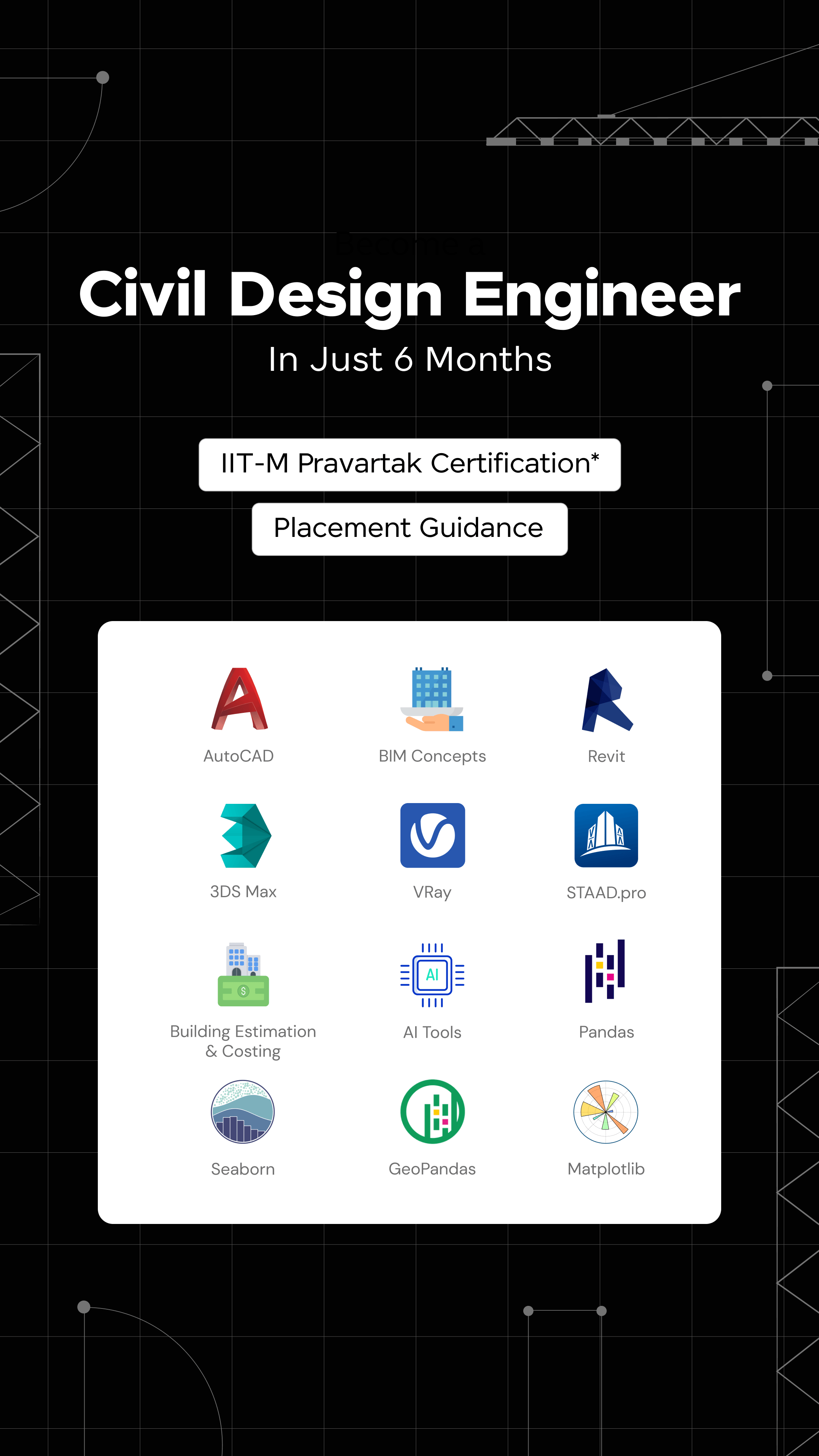
















![On-demand Civil Engineering Project Ideas That You Shouldn't Miss [2024] 8 Feature image - Civil Engineering Project Ideas](https://www.guvi.in/blog/wp-content/uploads/2023/09/Feature-image-Civil-Engineering-Project-Ideas.webp)

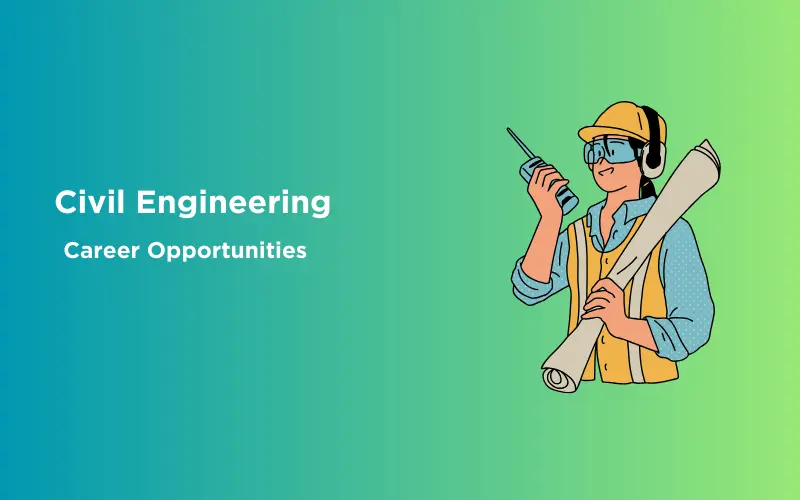
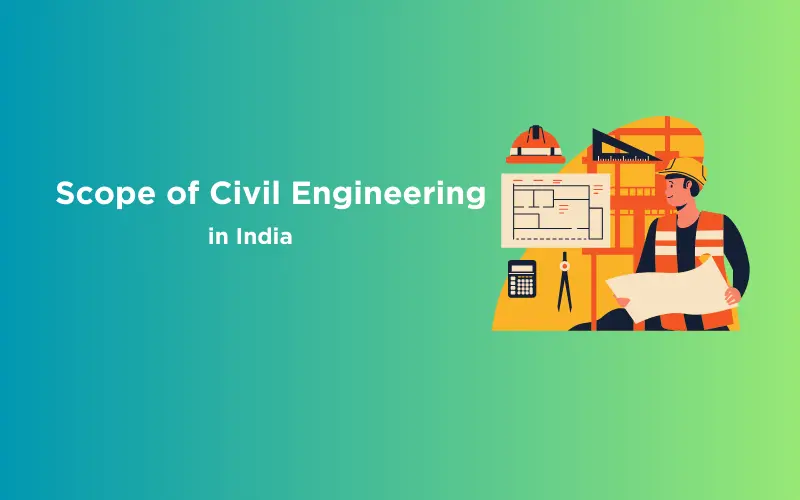

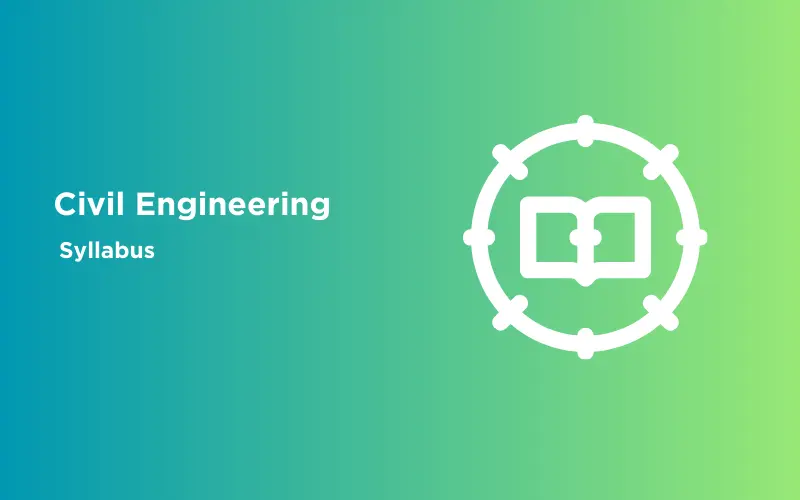
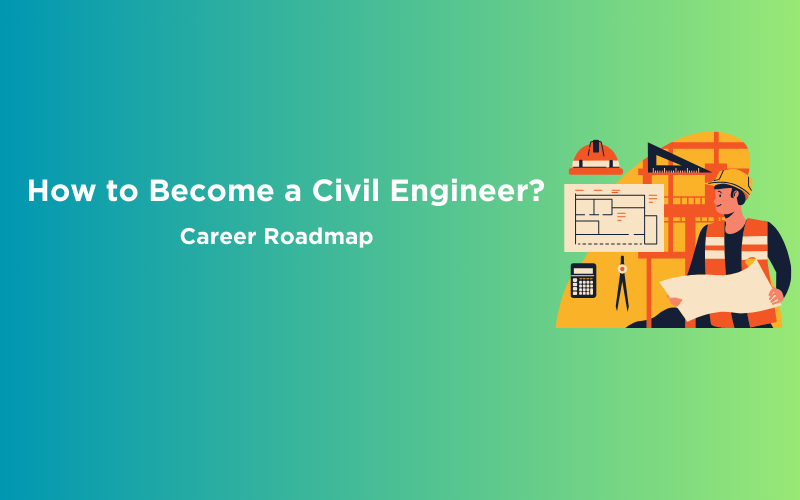

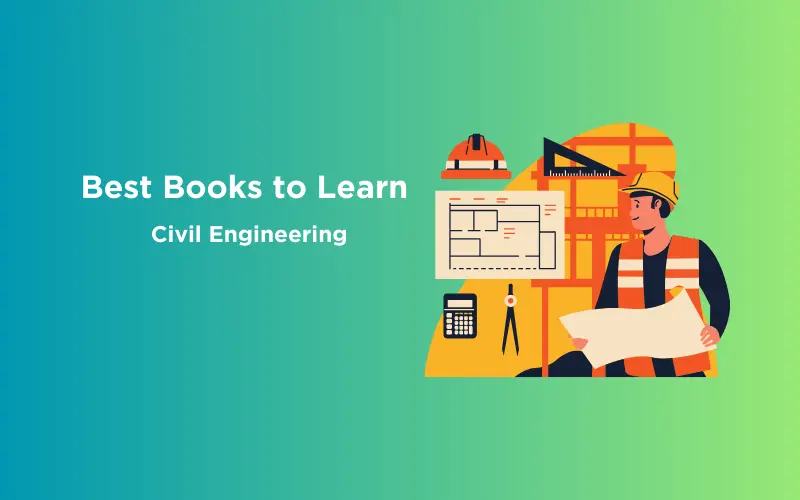
Did you enjoy this article?